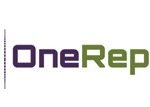Legislators and other financial rule-makers across the world are telling companies and institutional investors to say what part, if any, social responsibility plays in their business plans. Here are some of the most significant measures to date:
AUSTRIA: Voluntary guidelines for sustainability reporting were developed in 2003.
AUSTRALIA: Since 2001 all listed companies on the Australian Stock Exchange have been required to make an annual responsibility report. In April last year the stock exchange’s corporate governance council recommended boards also make a statement saying how they safeguard the interest of other stakeholders (see Clear Profit, issue 8, April 2003).
BELGIUM: Belgian companies and the subsidiaries of foreign corporations located there have since 1996 been obliged to report on the companys social performance over a three-year period. In 2001 the Belgian Council of Ministers enacted laws requiring pension funds to report how, if at all, they integrate social and environmental performance of companies into investment decisions.
DENMARK: Danish companies have been required to report on their environmental impact since 1995. In addition, companies working in certain sectors – such as forestry, plastic and steel – are required to submit ‘green accounts’ every year. In 2001 the government developed a set of guidelines for social and ethical reporting aimed at both private and public entities, with a special set for smaller businesses.
FINLAND: In January last year the Finnish accounting standards board published guidelines for environmental disclosures in annual reports.
FRANCE: 2001 saw France enact three laws on corporate social responsibility: From February that year managers of employee savings funds were required to consider social, environmental or ethical considerations when buying and selling shares; Then, in May, parliament passed the New Economic Regulations Law (http://www.senat.fr/dossierleg/pjl99-321.html) requiring listed companies to describe the social, environmental and financial outcomes of their activities in their annual reports; And in July a law created the Fonds de Réserve pour les Retraites (http://www.retraites.gouv.fr), a 16 billion-euro public pension reserve fund which has take social, environmental and ethical considerations into account.
GERMANY: In 2001 the government required pension funds to declare how, if at all, social and environmental factors influence their investments decisions.
ITALY: Legislation was passed this month requiring pension funds to disclose the non-financial factors influencing their investment decisions (see news in brief this issue). The Region of Umbria had already passed a regional law in November 2002 registering companies awarded the SA8000, a standard for workplace conditions. Though the standard is voluntary, inclusion in the Umbrian register confers advantages in public procurement decisions, financial support for training and certification, simplified administrative procedures and fiscal incentive.
NETHERLANDS: More than 300 companies have been obliged to report on their environmental activities since 1999. Meanwhile the Dutch Advisory Board for Annual Reporting have developed guidelines for corporate social responsibility reporting.
NORWAY: Under the 1999 Accounting Act all companies must include environmental information in their annual reports. The Norwegian Environmental Department has also developed a standard for environmental reporting.
SWEDEN: Since 1999, larger companies have had to disclose information on their environmental impact. Under the Public Pension Funds Act of 2000, the state pension funds are mandated to describe how environmental and ethical considerations are taken into account in investment activities.
SOUTH AFRICA: In 2002 the South African Institute of Directors issued guidance on corporate governance (http://www.iodsa.co.za/corporate.htm) saying listed companies, banks, financial and insurance entities should "report at least annually on the nature and extent of its social, transformation, ethical, safety, health and environmental management policies and practices." Boards, it said, should also disclose policies on HIV/AIDS, black economic empowerment and their code of ethics. Talks at the Johannesburg Securities Exchange on making the reporting of HIV/AIDS a listing requirement have so far led to nothing (see Clear Profit, issue 2, August 2002).
UNITED KINGDOM: In 1999 parliament approved the Pensions Disclosure Regulation requiring all trustees of UK occupational pension funds to disclose "the extent (if any) to which social, environmental or ethical considerations are taken into consideration in the selection, retention and realisation of investments". The government is now in the final stages of modernising company law which will require companies to include social, environmental and ethical matters in their annual reports where it is in the interests of existing shareholders (see Clear Profit, issue 17, May 2004).
UNITED STATES: Section 406 of the Sarbanes-Oxley Act, which came into effect in July 2002, requires companies to disclose a written code of ethics adopted by their chief executive, chief financial officer and chief accountant. A Congress investigation into corporate environmental disclosure concluded last month but was unable to come to any firm conclusion on how scrupulously companies observe environmental disclosure requirements (see Clear Profit, issue 20, August 2004).
Annemarie Meisling, assistant attorney at law at Lawhouse.dk



